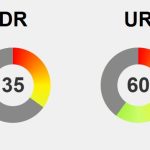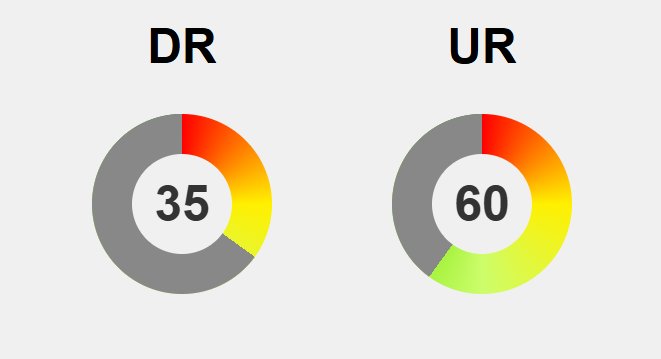Is IQ truly the ultimate measure of human potential? This compelling exploration challenges the traditional focus on standardized tests, revealing that intelligence encompasses far more than a numerical score. Traits like creativity, emotional resilience, perseverance, and adaptability often predict success more reliably than IQ alone. Historically rooted in early 20th-century psychology, the concept of intelligence has evolved from narrow assessments to a rich, multifaceted understanding that values diverse talents and strengths. Today’s perspective emphasizes that potential is dynamic and cultivable through effort, environment, and mindset. By fostering qualities such as grit and emotional intelligence, individuals unlock deeper levels of growth and achievement. This shift not only broadens our view of human capability but also calls for innovative assessment methods and supportive environments that nurture the full spectrum of talents. Are we ready to redefine success by embracing the complex, ever-evolving nature of human potential?
Unveiling the True Scope of Human Potential
Human potential is often misunderstood as a simple measure of intelligence or a fixed set of skills. In reality, it encompasses a wide array of qualities—traits and abilities—that enable us to grow, adapt, and succeed across different areas of life. While many associate potential with academic achievement or IQ scores, true potential goes far beyond those narrow indicators. It includes creativity, emotional strength, perseverance, and resilience—qualities that help us navigate setbacks, forge relationships, and pursue new opportunities. Recognizing these diverse traits broadens our understanding of what it really means to be capable.
In today’s fast-changing world, understanding human potential is more crucial than ever. Success isn’t just about how clever you are on paper; it’s about how effectively you handle challenges, learn new skills, and connect with others. Traits like curiosity and grit often determine how well someone can adapt to unpredictable circumstances and thrive amid uncertainty. When we see potential as a combination of various qualities, we open ourselves to personal growth and societal progress that values different strengths.
Historically, attempts to measure intelligence focused heavily on standardized testing, starting with early efforts to identify children needing extra support. These tests, like IQ assessments, aimed to quantify reasoning and problem-solving abilities, shaping how society viewed intelligence as a fixed trait. Over time, critics pointed out their limitations—cultural biases and an inability to capture creativity or emotional intelligence—leading to broader perspectives. Today, many recognize that qualities like emotional resilience, social understanding, and creativity are just as vital for success as traditional academic skills.
This shift has also revealed that intelligence isn’t a single, unchangeable attribute but a complex, multi-dimensional concept. The idea of multiple intelligences—such as musical talent, kinesthetic ability, or social skills—challenges the notion of a narrow, fixed measure. Instead, it emphasizes that each person’s potential is unique and shaped by a mix of talents that can be nurtured over time. This perspective encourages us to see success as a journey of continuous development rather than a static label.
Recognizing the full spectrum of human potential helps us create environments that foster growth in all areas. Educational systems and workplaces are increasingly valuing soft skills—empathy, collaboration, problem-solving—alongside cognitive abilities. These qualities often determine long-term success, resilience, and happiness more than raw intelligence alone. When we understand that potential isn’t fixed, but something that can be cultivated through effort and environment, we unlock new possibilities for everyone.
This broader view also highlights that qualities like perseverance and emotional intelligence can be developed deliberately. Cultivating a growth mindset—believing abilities can improve with effort—encourages persistence and resilience. When setbacks are seen as opportunities to learn rather than failures, individuals become more motivated and capable of reaching their full potential. This understanding shifts focus from innate talent to ongoing effort and self-awareness, empowering us all to grow continuously.
Embracing this expanded understanding of human potential transforms how we see ourselves and others. It invites us to value diverse talents and recognize that everyone has unique strengths waiting to be cultivated. By focusing on qualities like creativity, resilience, and emotional intelligence, we can foster a more inclusive, innovative society where success is measured by growth and adaptability, not just test scores or fixed labels. Unlocking true potential is a lifelong journey—one that benefits us all when we focus on developing the qualities that truly matter.
Tracing the Origins of Intelligence and Its Evolving Perspectives
The measurement of intelligence has roots stretching back over a century, beginning with early efforts to identify children who needed extra academic support. Psychologists like Alfred Binet and Théodore Simon pioneered the first standardized IQ test in the early 1900s, aiming to assess reasoning, memory, and problem-solving skills. Their goal was practical: help educators better support students’ individual needs. These tests quickly gained popularity and became a dominant way to evaluate potential, shaping societal views of intelligence as a fixed, measurable trait.
As understanding deepened, doubts about the narrow focus of IQ tests grew. Critics highlighted their cultural biases and their failure to account for skills like creativity, emotional intelligence, and social understanding—traits crucial for real-world success. This skepticism prompted a shift toward viewing intelligence as a multi-faceted concept. Psychologists such as Howard Gardner challenged the idea of a single, fixed form of intelligence, proposing multiple intelligences including musical, kinesthetic, and interpersonal skills, each valuable in its own right.
This broadened perspective marked a significant turning point. It moved the conversation away from a single score toward a recognition of diverse talents and abilities. The limitations of early IQ tests became evident—they often failed to capture the full range of human potential. Instead, today’s understanding emphasizes that intelligence is complex and adaptable, shaped by environment, culture, and effort. Recognizing this diversity encourages us to see potential as something that can grow and evolve over time.
Cultural values also influence how intelligence is defined. Western societies tend to emphasize logical reasoning and academic achievement, while other cultures might prioritize social harmony, practical skills, or spiritual wisdom. These differences shape not only how intelligence is perceived but also how it is measured and nurtured. This highlights that intelligence isn’t a universal, one-size-fits-all concept but a reflection of cultural priorities and societal norms.
Leading psychologists like Gardner, Goleman, and Sternberg have expanded our understanding of intelligence to include emotional resilience, creativity, and practical skills. Their work underscores that qualities such as adaptability and perseverance are just as vital as traditional cognitive abilities. This evolution in thought pushes us toward a more inclusive view—one that values the full range of human talents and recognizes that potential is dynamic and cultivable through effort and environment.
Modern Views on Success: Beyond IQ to Traits That Matter
Today’s understanding of human potential is far more nuanced than traditional measures suggest. While IQ tests and academic achievements still hold influence, traits like creativity, emotional resilience, adaptability, and grit are increasingly recognized as essential drivers of success. These qualities enable individuals to navigate complex environments, solve unpredictable problems, and foster innovation—areas where standardized tests often fall short. Employers and educators now value skills like empathy, collaboration, and problem-solving, understanding that long-term achievement depends on a blend of cognitive and social strengths.
This shift reflects a deeper appreciation that potential isn’t a single fixed trait but a rich, multifaceted blend of abilities. Someone might not excel on an IQ test but could shine in leadership, artistic pursuits, or social understanding. These traits often determine how well someone recovers from setbacks, builds meaningful relationships, and adapts to rapid change. Cultivating emotional intelligence and perseverance has become just as important as sharpening analytical skills, especially in a world that’s constantly evolving and demanding flexibility.
In education and the workplace, this broader perspective is reshaping growth strategies. Schools are moving away from rote memorization toward fostering curiosity, resilience, and social skills. Meanwhile, organizations are adjusting hiring practices and company cultures to prioritize soft skills, recognizing that collaboration and innovation are often more valuable than technical expertise alone. This approach emphasizes that human potential is fluid and can be developed through effort, environment, and deliberate practice. Traits like curiosity and grit are no longer seen as fixed but as qualities that can be cultivated over time.
Research supports this expanded view, showing that perseverance, adaptability, and emotional resilience predict long-term success more reliably than IQ alone. People who demonstrate these qualities tend to recover faster from failures, stay motivated through challenges, and pursue continuous growth. These traits foster a growth mindset—believing abilities can be improved with effort—which encourages ongoing learning and self-improvement. Recognizing and nurturing these qualities unlocks deeper levels of potential that traditional assessments often overlook.
Innovations in understanding human potential challenge us to rethink how we measure and support talent. The emphasis is shifting toward recognizing diverse strengths—whether creative, social, or emotional—that contribute to a person’s ability to thrive. Cultivating traits like resilience, empathy, and perseverance transforms the idea of success from innate talent to a lifelong journey of development. This perspective not only broadens opportunities for individuals but also fuels societal resilience and innovation, ensuring we’re better equipped for the uncertainties ahead.
This evolving understanding of human success also highlights the importance of leveraging resources that support personal growth. For those interested in developing these crucial traits further, exploring platforms dedicated to self-improvement can be highly beneficial. You can learn more about how to build resilience and perseverance at Self-Improvement Resources and incorporate these insights into your journey toward success.
Practical Strategies to Cultivate Your Full Potential
Unlocking true potential goes beyond sharpening IQ or mastering academic skills. It starts with adopting a growth mindset — the belief that abilities can be developed through effort, learning, and perseverance. Viewing challenges as opportunities to improve encourages resilience and keeps motivation high, even when progress feels slow. This mindset transforms setbacks from failures into valuable lessons, fueling continuous growth and self-improvement.
Building traits like emotional resilience involves becoming aware of and managing our emotions. Practices such as mindfulness, meditation, or deep breathing can help us stay centered during stressful moments. Instead of suppressing feelings, learning to understand and regulate them builds confidence and emotional strength, enabling us to bounce back faster from setbacks and handle adversity with clarity. Emotional resilience turns difficult experiences into catalysts for growth.
Creativity and grit flourish through deliberate effort and a willingness to step outside comfort zones. Experimenting without fear of judgment fosters innovation, while setting long-term goals and viewing setbacks as part of the process builds perseverance. Regular reflection and feedback help reinforce these traits, transforming small efforts into habits that enhance adaptability and persistence. Cultivating curiosity and resilience becomes a natural part of daily life when we see growth as an ongoing journey.
Engaging in playful learning methods like gamification, improvisation, or visualization techniques makes personal development more dynamic. These approaches boost self-awareness, foster spontaneity, and strengthen mental flexibility—traits vital in today’s fast-paced world. By making growth engaging and accessible, we break down barriers that often discourage effort, encouraging a mindset that welcomes continuous exploration and improvement.
Creating environments that celebrate effort and diverse strengths is crucial. Whether at school or work, emphasizing progress over innate talent fosters confidence and resilience. Regular feedback, reflection, and effort-based goals help individuals recognize their development, reinforcing positive habits. When effort is valued equally with talent, everyone is empowered to unlock their full potential, transforming growth from a one-time achievement into a lifelong pursuit.
Shaping the Future: Embracing a Holistic View of Human Growth
Understanding human potential shifts our focus from narrow measures like IQ scores to recognizing a broader set of qualities that truly drive success and fulfillment. Traits such as creativity, resilience, emotional intelligence, and grit are just as vital—if not more so—than raw cognitive ability. As research advances, it becomes clear that adaptability, perseverance, and emotional strength shape our capacity to thrive in a complex, unpredictable world.
While standardized tests like IQ have their place, they often overlook the full range of human talents. They fail to capture how well someone can recover from setbacks, build meaningful relationships, or think innovatively. Moving forward, developing more comprehensive assessment tools that acknowledge diverse strengths will help us better identify and nurture potential across different areas. This broader view supports individual growth and societal progress by valuing a multitude of talents.
Fostering genuine potential begins with cultivating a growth mindset—believing abilities can be developed through effort and learning. When people see challenges as opportunities rather than obstacles, they become more resilient and motivated. Emphasizing emotional regulation and self-awareness through practices like mindfulness or reflection strengthens resilience and helps maintain focus during tough times. These qualities, once nurtured, become habits that unlock deeper levels of ability.
Encouraging creativity and grit involves pushing beyond comfort zones. Experimenting freely, even risking failure, sparks innovation. Setting long-term goals and viewing setbacks as part of the growth process builds perseverance. Techniques such as visualization, improvisation, and playful learning make personal development engaging, breaking down barriers that often discourage effort and exploration.
Creating environments that celebrate effort and diverse strengths is crucial. Whether in classrooms or workplaces, emphasizing progress over innate talent fosters confidence and resilience. Regular feedback and effort-based goals help individuals recognize their development, reinforcing positive habits. When effort is valued equally with talent, everyone has the opportunity to unlock their full potential.
As we look ahead, embracing this multi-dimensional view of human potential opens the door to a more inclusive and innovative future. Valuing different kinds of intelligence and strength fosters a society where everyone’s unique talents can flourish. Supporting lifelong learning and self-awareness transforms growth into an ongoing journey rather than a final achievement, preparing us collectively for the uncertainties of tomorrow.
By focusing on qualities like curiosity, empathy, and perseverance, we create a culture that nurtures continuous development. This shift from fixed labels to dynamic growth encourages individuals to see themselves as capable of more—regardless of past limitations. When effort and resilience are prioritized alongside innate talent, we unlock a wealth of human potential waiting to be realized.
Ultimately, unlocking true potential means fostering a mindset that thrives on effort, resilience, and curiosity. It involves building spaces that recognize and develop the full spectrum of human abilities. In doing so, we not only empower individuals but also cultivate a resilient, creative, and compassionate society equipped to face the challenges ahead. This ongoing journey of growth benefits everyone, shaping a future where possibilities are truly limitless.





